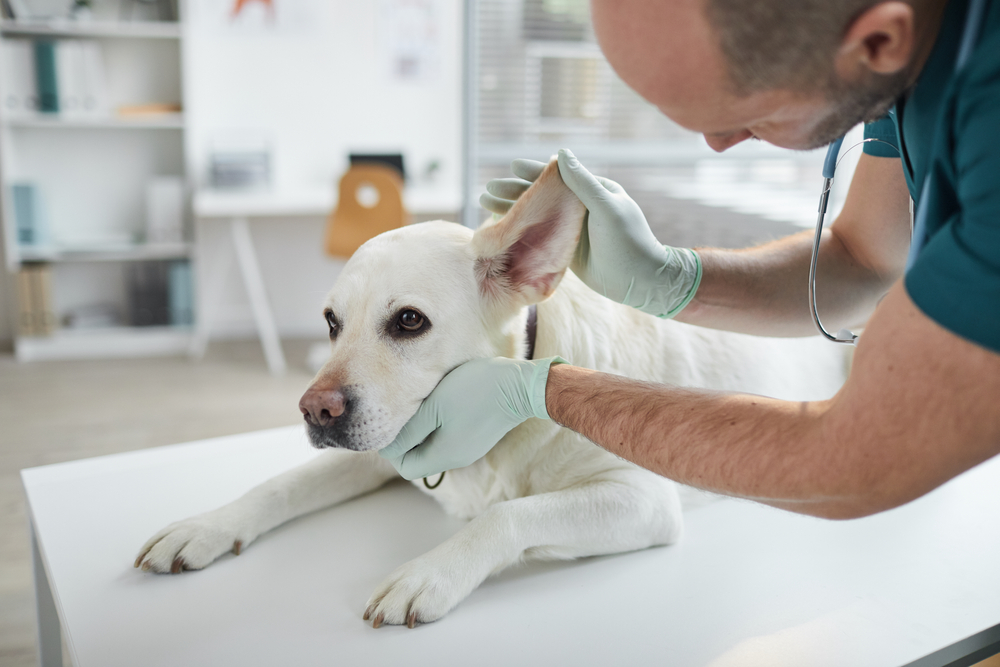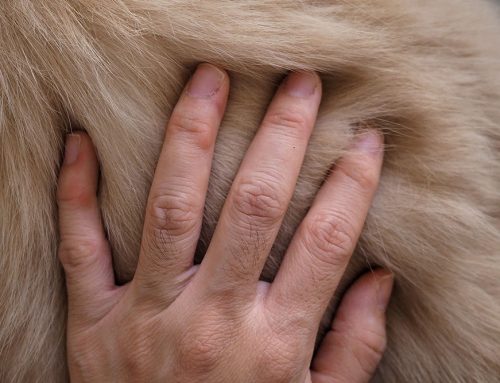As a pet owner, you want to keep your furry pal happy and healthy to enjoy many years by your side, and there’s no better way than through preventive care. By engaging in regular physical exams, parasite prevention, and essential vaccinations, you can help your four-legged friend live a long and healthy life. Many fatal illnesses, like rabies, parvovirus, and heartworm disease, are almost 100% preventable through vaccination and parasite prevention.
While you know your pet receives vaccinations during their wellness visits to Guam Pet Hospital, you may not understand all the ins and outs of pet vaccines, the diseases they prevent, and how they also keep your family safe, so we offer this pet vaccination guide to answer your questions. Plus, you can always call our team for more information.
What are pet vaccines?
Vaccines contain tiny pieces of the virus or bacteria that they protect against. Once injected into your pet, their immune system mounts a response to tackle these invaders. By creating antibodies to the initial vaccination “infection,” the immune system will remember threats that occur in the future and take action against the reintroduced disease.
What vaccinations are recommended for dogs?
Vaccinations are administered based on your pet’s lifestyle and exposure risk. However, some core vaccinations, such as rabies, are required for all pets. We may recommend the following vaccines for your dog:
- Rabies — Rabies is a fatal illness that your pet can contract through the bite of an infected animal. No cure is available, and death is always the result.
- Distemper — Distemper is a highly contagious disease that can be spread by dogs or wildlife, such as racoons. Signs are widely varied and may range from gastrointestinal issues to neurologic problems. A dog may survive a distemper infection, but will likely suffer lifelong effects.
- Parvovirus — Parvovirus is one of the most common, yet most preventable, diseases we see here at Guam Pet Hospital. This highly infectious and often fatal illness, which typically affects young puppies or unvaccinated dogs, causes severe vomiting and diarrhea, often containing blood. Parvo can quickly lead to death if untreated, and advanced nursing care may be unsuccessful. Since this disease is so prevalent in our area, we recommend keeping your puppy indoors until they are fully vaccinated. Heavy rains can carry this deadly virus right to your doorstep, infecting your puppy as soon as they step outside. And, some breeds are more susceptible to this disease, such as German shepherds, rottweilers, dobermans, and the bully breeds. These puppies should receive four parvovirus vaccinations spaced three weeks apart during their series to ensure adequate protection, rather than the standard three vaccinations for most other breeds.
- Adenovirus — Also known as canine hepatitis, adenovirus causes vomiting, diarrhea, and a fever, and can be fatal.
- Leptospirosis — Spread through wildlife urine, leptospirosis can infect your pet through contact with contaminated soil or water. This disease can rapidly cause irreversible kidney failure, and can be transmitted to you from your pet.
- Bordetella — A highly infectious disease, bordetella, or kennel cough, can spread like wildfire through boarding facilities and animal shelters. An infected dog typically has a self-limiting cough that resolves after a couple of weeks, but some cases can develop into pneumonia.
What vaccinations are recommended for cats?
Like their canine counterparts, cats require regular vaccinations, and we may recommend the following:
- Rabies — Rabies is considered a core vaccine for all pets, including house cats.
- Feline viral rhinotracheitis and calicivirus — These two diseases cause upper respiratory signs, such as sneezing, eye and nose discharge, and tongue blisters. Once infected, cats can experience flare-ups later in life, so vaccination before initial infection can prevent chronic problems.
- Panleukopenia — Similar to parvovirus in dogs, panleukopenia can rapidly turn fatal as kittens or cats become weakened from severe diarrhea and vomiting.
- Feline leukemia — Feline leukemia weakens the immune system over time, leaving your cat vulnerable to secondary infections, and is the most common cause of cancer in cats.
Why do puppies and kittens need a vaccine series?
Young puppies and kittens require a vaccination series to ensure their immune system is properly stimulated to produce life-saving antibodies. As your pet grows, their maternal antibody level declines, which can leave them unprotected without vaccinations. However, there is no magic age at which a pet’s maternal antibodies decrease to a non-protective level, so they need a series of vaccinations to ensure adequate protection. Vaccinations are given three to four weeks apart as your puppy or kitten grows, to avoid missing gaps in antibody protection, with the final vaccination set at around 16 weeks of age, when your pet’s immune system is considered more mature.
Do indoor-only pets need vaccinations?
Yes! All pets need vaccinations against life-threatening diseases. Your pet may never leave your home—except to visit their Guam Pet Hospital veterinarian—but they can still be exposed to infectious illnesses. Many diseases are transmissible through indirect contact, meaning you can carry viruses or bacteria home on your shoes, clothes, and hands, and infect your pet. Additionally, wild animals, such as bats and raccoons, can slip into your home and transmit disease. Or, your pet may sneak out through an open door and contract a disease while running loose. You never know when your pet may be exposed to disease, so always ensure they are protected through regular vaccination.
Does my pet need vaccinations every year?

While three-year vaccinations are available for some diseases, your pet still needs an annual physical exam and boosters for one-year vaccines. For example, if your dog visits a doggy daycare, dog park, or boarding facility, they will need to be updated on their annual bordetella, or kennel cough, vaccination. If you’re unsure what vaccinations your pet needs, contact our team for help.
Is your furry pal due for life-saving vaccinations? Don’t delay. Contact our Guam Pet Hospital team to schedule an appointment to keep you and your pet safe from infectious diseases.








Leave A Comment